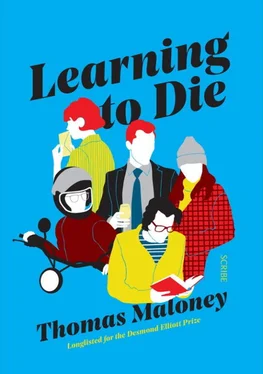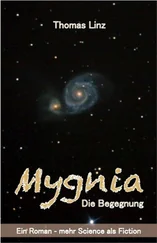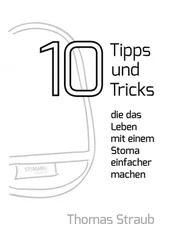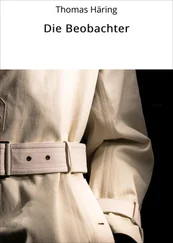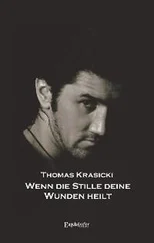There is one possibility he hasn’t discussed with Natalie: a disease his GP chose to omit from her list. Much worse than MS. Dan has looked up what the first symptoms are.
Just after four, lunch is served. God bless us, every one.
‘I wish for no misunderstandings, either in my favour or my disfavour.’
Montaigne
James F. Saunders fell in love on the bus last week — he’s now comfortable using that phrase: fell in love — but is recovering. It’s New Year’s Eve, and he’s back in Bay; Coventry has nothing for him. He sits on the chill concrete of the sea wall, back against a bollard, legs dangling.
The girl seated behind him on the bus, whose face he never saw and who was probably only fifteen or sixteen, told her friend that she didn’t consider her parents to be fully human, because they didn’t feel as intensely as she did. They were more like fish, she suggested. The friend giggled; the girl didn’t. It was an unexceptional thing for an adolescent to say. But then she added, ‘And the worst thing is, they know it’s true, because they were our age themselves once, so they know they’ve like slowly become subhuman, but they won’t admit it. Not even to themselves. I feel sorry for them.’
This girl will, in time, discover her assertion to be precisely correct. Adults are indeed subhuman. Burned out bureaucrats of the species. Of course by then, she’ll be one too. Won’t care to remember her youthful insight. For a writer, emotion is an engine of ideas and not vice versa. If James experiences fewer and feebler emotions as he grows older, inhabits a barren, worked-out emotional field, is it any wonder he has fewer ideas?
He throws a pebble into the sea, with a vague notion that it’s the right thing, the emotional thing to do. The act resounds with emptiness. A single gull flies high above, following the line of the coast, making steady progress towards an unstated but certain goal: another reproach.
It doesn’t matter. There are methods, workarounds, by which old men can write great books. James walks slowly back to his lodgings. Flexes his fingers. For a subhuman to whom nothing comes naturally anymore, the novel is a test of intellect, guile, mettle; above all, memory. Bringing old emotion to mind. Project Q. Auld lang syne .
As Brenda’s train rushes northward past the snow-dusted Moors, she again watches for James. They did not avail themselves of the opportunity to meet up over Christmas. James’ texts have been petering out. Absence makes the heart grow cold, in Brenda’s experience.
Mike did the older brother thing, told her to be careful. A guy like Mike is never likely to understand a guy like James. She braced herself for more, especially as James pinched his fancy book, but that was it — be careful. The cocked ginger eyebrow. Thanks, Mike, but I’m twenty-eight.
She spots a kestrel, a quivering fan of feathers fixed in space. Last summer she visited a birds of prey centre near Loch Lomond, and afterwards wished she hadn’t. Lots of chit-chat about conservation but ultimately birds in cages and birds tethered to posts. There’s no such thing as a cage big enough for an eagle. Now James is no eagle, but he could be, say, a Harris hawk — perched in a cage of his own devising. It used to have big ideas; now it blinks and fidgets on a well-soiled perch looking a bit foolish. But still handsome: the noble soul undefeated.
Brenda, on the other hand, is a hooded crow soaring free: the Highlands are calling. Will her van start? And is James on her side, or not?
Mike Vickers doesn’t have his money yet. His unauthorised nocturnal trade was probably a breach of contract and could, in theory, give the bastards an excuse not to pay him. But, he keeps telling himself, it made money: whoever heard of a rogue trader who made money? Nobody. Anyway, the trade seems to have gone unnoticed. Too small to matter. Mike just has to sit tight for another three weeks, and not get fired.
Every January an email goes round offering tax planning advice. Every year Mike, one of the small fry, embarrassed enough by his net pay, ignores it and takes the near-fifty-per cent PAYE hit like a gentleman. This year, Mij persuades him to make an appointment. If Mike has always felt like an imposter in this business, an inside man, now he feels like a double agent. He’s always hated spy thrillers — can never follow who’s working for whom.
‘Mr Vickers. Please take a seat.’ The accountant is an amphibian — small, moist and astonishingly ugly. Isn’t the devil supposed to wear fine raiment? His wife, in her silver frame, presents a stoical smile to the camera; the gurning children have their father’s looks.
Apparently Mike can whack some of his bonus into his pension, but not all of it because he’d blow his lifetime allowance. Or he can invest in some shady-but-safe scheme that attracts tax relief. Attracts it, just like that. Or he can keep the money offshore and withdraw a small amount each year, tax-free. A small amount, in his case, means over a hundred grand.
As he listens to these choices, Mike understands perfectly why the wealthy are so despised. Offshore bank account: here is the irrevocable fork in the road, the decisive plunge into Macbeth’s bloody river, the final, unambiguous breach of another, more important contract: the social contract.
But. For ten years this job has been a fat, obscuring blob of self-deception stuck fast in the middle of his life. Important things — beauty, truth, perhaps love — have peeped and curled at the margins, always just out of reach or sight. He could have been someone else, someone real, but he’s been this instead. He wants payback.
‘I’ll take the offshore option,’ he says, decisively. Stepped in so far.
The neurologist is younger than Dan. Sporty sort of chap — triathlon finisher’s medal, bicycle helmet hanging on the back of his door. He’s called Dan too.
During the past few family-filled and friend-filled weeks, our Dan’s apprehension has been a lonely burden. He said nothing more to his parents. His mum has always been a worrier, which of course means her children — usually Laura, but this time Dan — have always been less likely to tell her the things she so desperately wants to know. As for his dad, ten years ago Dan might have talked it all through with him in the pub, or more likely in the garage. But one of the subtle changes age has engineered in his dad’s mind is to make him a worrier too. The pair of them are now as bad as each other. And Dan might not be horribly ill, or might be only moderately horribly ill.
Finally, Natalie: he has told her everything the GP told him. Every last detail. He’s wanted to go further, to fling his worst fear on the table, but something has stopped him. He doesn’t want to touch that worst fear, to utter it, to justify it. Natalie’s matter-of-fact optimism — she may not be a doctor, but she’s no fool — is all he’s had to hold on to.
Now he needs answers. As he describes his symptoms again and the other Dan nods thoughtfully, he’s struck by the towering asymmetry between doctor and patient. No other human interaction is quite like it. Little wonder doctors have been revered and reviled over the millennia — setting themselves up as God. Dan himself, trained to a comparable level of specialised knowledge and skill, is a god only to his electrons; if he loses a batch, nobody weeps. Here, he might as well be on his knees.
The young doctor looks grave, but otherwise gives little away. He wants tests. As an experimentalist Dan is no stranger to the process of diagnosis, and tries to read between the lines. What he reads is not good.
Читать дальше
